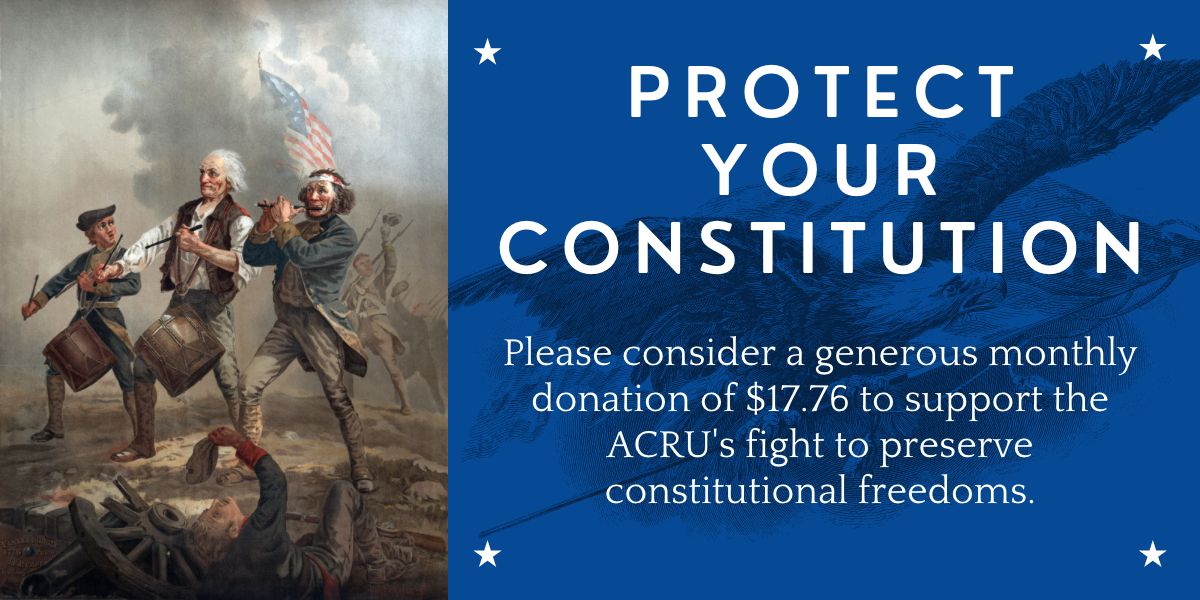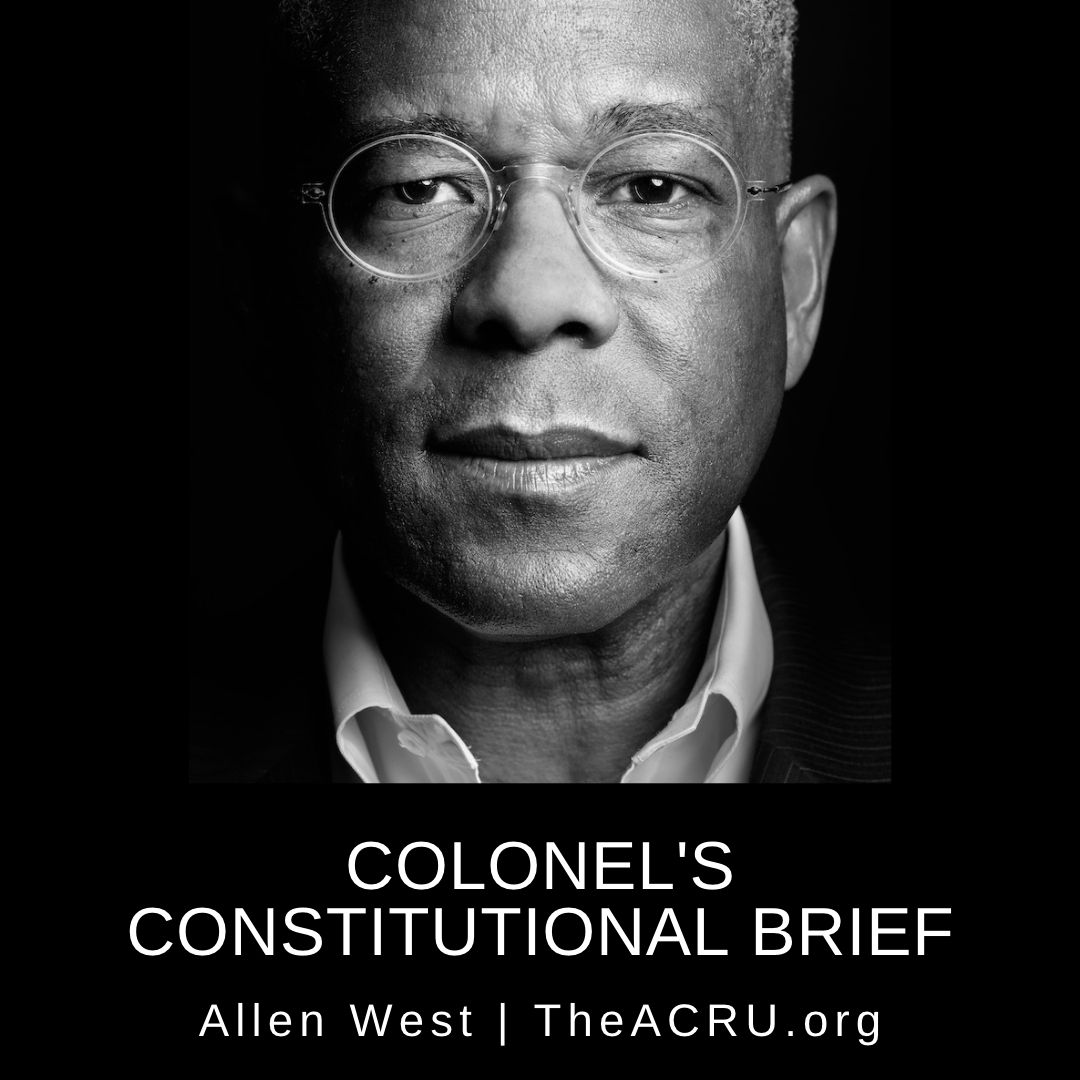Obamacare Day 3: Does Medicaid Expansion Violate 10th Amendment?
ACRU Staff
April 2, 2012
This column by ACRU Senior Legal Analyst Ken Klukowski was published March 31, 2012 on Breitbart.com.
For a century, legal scholars wondered if a federal spending program could ever violate the 10th Amendment by coercing the states to go along, since the states are sovereign and equal in stature to the federal government. The final issue the Supreme Court will decide is whether Obamacare’s massive expansion of Medicaid–and sticking the states with part of the price tag–is the first program to cross this constitutional limit.
As Paul Clement–the lawyer representing 26 states in the Obamacare case–summarized to the Court: “The expansion of Medicaid since 1984 is really breathtaking.” It went from $21 billion then to $250 billion now, and Obamacare takes it to $330 billion per year.
Clement went on to explain that if a state declines to go along with the expansion, Congress decided to empower the secretary of the Department of Health and Human Services (HHS) to strip every dollar of Medicaid from the state–not just the expanded funding but the entire system currently covering poor people in that state.
The liberal justices’ response could be characterized as, “Move along. There’s nothing to see here.”
Justice Ruth Bader Ginsburg tried to suggest that Obamacare was no different than any other Medicaid expansion (of which there have been several), so it must be fine. Clement responded that, to the contrary, Congress routinely allows the states to choose whether they want to join the expanded part, and if so, they forgo only the supplemental funds. They don’t endanger the programs already in place.
Justice Stephen Breyer defended this part of Obamacare by suggesting that any decision to cut off all funds would be subject to another law–the Administrative Procedure Act (APA)–that requires agency actions to be “reasonable.” Thus, Breyer argued, courts could block such a draconian cut by judging it unreasonable.
Clement responded that the Court had never done that to a spending decision. And Justice Antonin Scalia shot down that possibility, pointing out that while the APA governs many agency decisions, it’s never been applied to trump another statute where Congress specifies that the secretary has complete discretion on how much funding to remove.
Ginsburg wasn’t done yet. “There are other states that like this expansion, and they are very glad to have it.” In other words, they enjoy having to spend more taxpayer money.
To this, laughter rippled through the courtroom when Justice Antonin Scalia asked, “Is there any chance that all 26 states opposing it have Republican governors, and all of the states supporting it have Democratic governors?” Clement answered yes.
Ginsburg was bewildered as to how this Medicaid expansion could be undesirable, how someone could argue that “because it was so good … it becomes coercive to be in it.” Maybe some people understand that an expansion of government healthcare might not leave people better off.
Scalia said some could characterize this Medicaid expansion, in which the federal government pays for part of it but makes the states pay the rest under threat of losing all their funding, to a comedy scene where there’s a gun to a man’s head, saying, “Your money or your life,” to which the man replies, “I’m thinking, I’m thinking.” Scalia said the scene “is funny, because it’s no choice.”
Chief Justice John Roberts added that the states “have compromised their status as independent sovereigns because they are so dependent on what the federal government has done, they should not be surprised that the federal government, having attached … the strings, they shouldn’t be surprised if the federal government isn’t going to start pulling them.”
Clement picked up on this theme. He argued that as a nation the Constitution does not permit us to “say that, you know, the states have gotten pretty dependent, so let’s call this whole federalism thing off.”
Justice Anthony Kennedy raised the possibility that in theory the federal government could directly fund the poor through a Medicaid-style program run by a huge federal bureaucracy, and asked how this is somehow a threat to federalism but such a purely national program is not.
Clement responded that the one-word difference is “accountability.” If it’s a federal program, voters know to hold the president and his appointees responsible when the system fails. If it’s a federal-state partnership, then although the fault might lie with Washington, the voters might wrongly punish their governors and state legislatures.
Solicitor General Donald Verrilli argued for the Obama administration that the justices shouldn’t be concerned that the government would cut off Medicaid funding because it’s never happened. Roberts rejected that, going back to Scalia’s analogy and saying, “the gun to your head, ‘your money or your life,’ you say, well, there’s no evidence that anyone has ever been shot… Well, it’s because you have to give up your wallet. You don’t have a choice.”
That’s the coercion here. Every voter in that state would still be paying into Medicaid through their payroll taxes every paycheck, but now they would be paying for the other 49 states. Try finding a governor or state legislator who wants to explain to their voters how they let that situation occur.
Roberts added, the “secretary has total and complete say” to revoke all funds under this law, and that, “so long as federal government has that power it seems to be a significant intrusion on the sovereign interests of the state.”
The chief pointed to a recent letter by HHS to Arizona, informing them that a proposed change to their state Medicaid program could result in Secretary Kathleen Sebelius choosing to cancel all of Arizona’s federal Medicaid dollars. He concluded, “Of course no state is going to say … make my day, take it away. They’re [instead] going to give in.”
Kennedy persisted that it’s “necessary for the idea of federalism that there is a clear line of accountability so the citizen knows that it’s the federal or the state government [that] should be held responsible for the program?”
All that said, the fifth vote on Medicaid is likely Justice Antonin Scalia. Yes, you’re reading that correctly. Scalia is the swing vote. He’s long emphasized that–generally speaking–Congress can do whatever it wants in a federal spending program so long as the states officially can reject the funds.
So he had people’s attention when Clement said he would explain why this Obamacare section was different, and Scalia responded, “I’m on pins and needles.”
Then he gave some encouragement to the challengers by saying, “What you call serious political constraints sometimes don’t work.”
Then Scalia signaled his openness on this issue by asking, “Isn’t the question simply: is it conceivable … that any state would turn down this offer, that they can’t refuse? … And if you can’t, that sounds like coercion to me.”
That said, this issue is still an uphill battle. We’ll find out in June what the Court decides.
JOIN ACRU's PATRIOT CLUB






